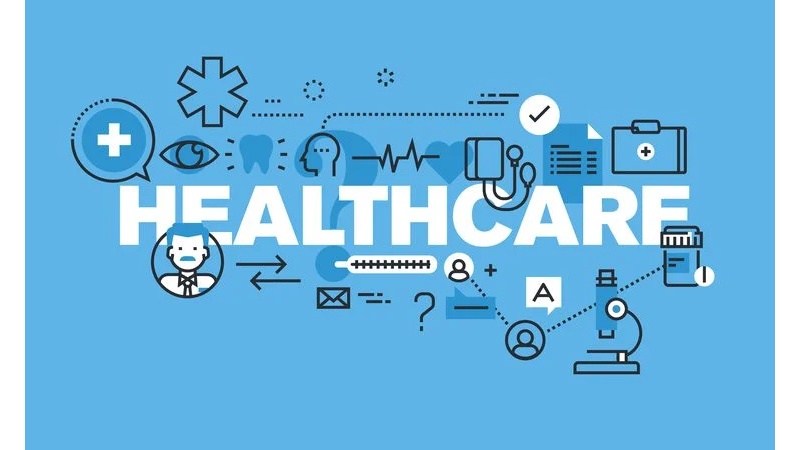Health
Bringing People Together to Empower: The Powerful Potential of Partnerships in Healthcare Marketing

The power of strategic alliances serves as a catalyst for progress in the rapidly evolving field of healthcare, where innovation is not only necessary but also has the potential to do good. Healthcare companies are under more pressure than ever to improve patient outcomes and patient-provider experiences to boost performance. When two or more parties pool their resources and skills to open up new prospects and improve the effectiveness of healthcare marketing, partnerships stand out as a powerful tool in this competitive environment.
The core of the healthcare industry is reflected in the idea that “together we are stronger.” To promote innovation more quickly and with greater impact, organizations develop cooperative partnerships that cut over departmental boundaries, share risks, and pool resources. Technology companies and healthcare marketing agencies form partnerships that promote synergy and allow the combined efforts of all parties to exceed the capabilities of anyone.
In today’s complex ecosystem, this is not simply a tactic for healthcare marketers—it is a necessity. The diverse groups involved in healthcare—from patients and providers to insurers and regulators—need a delicate touch, which can only be provided by a well-managed collaboration. By cooperating, the entire ecosystem will be able to better influence patient-physician interaction and health outcomes by coordinating specialized knowledge, technologies, and communication.
Why Partnerships Are Important in Healthcare Marketing?
The audience for these communications is both the patient and the healthcare provider, making healthcare marketing particularly challenging. Because each of the two groups is different, their communication tactics must also be different. This is where collaboration amongst companies is beneficial as it allows them to combine their insights and experience to target marketing campaigns with more precision.
For example, by collaborating with programmatic messaging firms, EHRs can use digital tools and advanced analytics to gain a deeper understanding of patient preferences and behaviors. When POC marketing partners capture real-time data (in a way that complies with HIPPA regulations) and pharmaceutical marketers use it to enhance messaging campaigns, the same data can be used to improve treatment and even medication adherence. In addition to improving patient-provider engagement, this data-driven strategy guarantees more effective and individualized marketing initiatives.
How Can Successful Partnerships Be Created and Maintained?
In healthcare marketing, forming and sustaining successful relationships calls for a calculated strategy. The following are essential strategies to be effective:
- Align on Goals and Values: All partners must have the same vision and principles that are directed toward better health outcomes. By ensuring that efforts are focused on common goals, this alignment lowers tensions and improves teamwork.
- Make Use of Complementary Strengths: Every partner brings a unique set of skills that can be recognized, further developed, and effectively and mutually beneficially employed in a partnership. For example, one partner’s proficiency with digital marketing could make up for another’s in-depth understanding of healthcare laws.
- Keep Lines of Communication Open: To successfully negotiate the complexity of healthcare marketing, regular, honest communication is essential. It facilitates discussing achievements, aligning strategies, and sharing successes.
- Measure and Adapt: It’s essential to keep track of collaboration efforts’ results over time. Partners can use this information to improve their tactics and decide on future joint ventures with confidence.
What Role Will Healthcare Marketing Partnerships Play in the Future?
Partnerships will be even more important in healthcare marketing in the future. The collaborations that can truly maximize the potential of AI and machine learning will be the most notable as we witness these technologies being used more and more. They will be the ones to shape more individualized and efficient patient experiences.
More significantly, alliances can provide strategic values in the current competitive health business by combining resources and expertise with reach and impact in marketing campaigns. Additionally, it fosters innovation and creativity by opening up new avenues for development and achievement.
Ultimately, the strength of collaborations in healthcare marketing serves to fuse disparate fields and assets to accomplish shared goals. In actuality, cooperation empowerment is the only way to produce meaningful outcomes as we plod through the complicated healthcare landscape. To rethink healthcare marketing and, eventually, improve the lives of people we serve, we must learn how to effectively use the power of teamwork.
-

 Business4 weeks ago
Business4 weeks agoHow to fill MSME Form 1? Step-by-Step Guide
-
Business4 weeks ago
From Marine to Chief: The Leadership Journey of Sean Mannix
-

 Gadget4 weeks ago
Gadget4 weeks agoAfter Grand Success on BLDC Ceiling Fan, Eff4 Is Launching Smart Bulb
-

 Festivals & Events4 weeks ago
Festivals & Events4 weeks agoGoogle Celebrates Cherry Blossom Season with Animated Doodle
-

 Business2 weeks ago
Business2 weeks agoPrakash and Kamal Hinduja: Driving Social and Environmental Change
-
Education3 weeks ago
Fred DuVal: University Leadership as a Critical Resource for Climate Change Research and Life-Saving Solutions
-

 Sports4 weeks ago
Sports4 weeks ago2025 NASCAR Craftsman Truck Series Baptist Health 200 at Homestead-Miami Speedway: Race Preview, Prediction, Schedule, Entry List, Drivers to Watch and How to Watch
-

 Health2 weeks ago
Health2 weeks agoThe Hinduja Brothers Commitment to Global Health: Empowering Communities Across Borders























